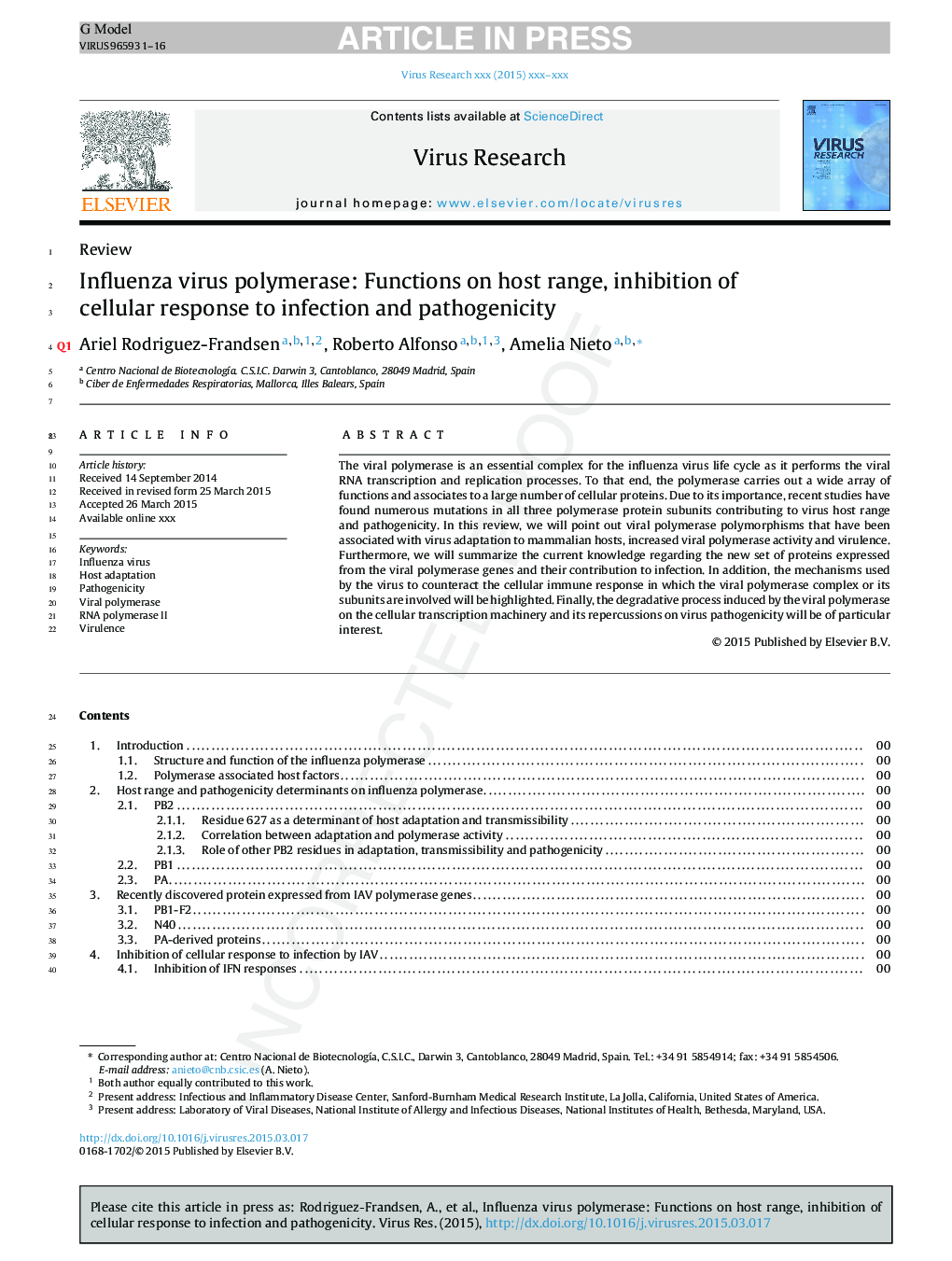| Article ID | Journal | Published Year | Pages | File Type |
|---|---|---|---|---|
| 6142212 | Virus Research | 2015 | 16 Pages |
Abstract
The viral polymerase is an essential complex for the influenza virus life cycle as it performs the viral RNA transcription and replication processes. To that end, the polymerase carries out a wide array of functions and associates to a large number of cellular proteins. Due to its importance, recent studies have found numerous mutations in all three polymerase protein subunits contributing to virus host range and pathogenicity. In this review, we will point out viral polymerase polymorphisms that have been associated with virus adaptation to mammalian hosts, increased viral polymerase activity and virulence. Furthermore, we will summarize the current knowledge regarding the new set of proteins expressed from the viral polymerase genes and their contribution to infection. In addition, the mechanisms used by the virus to counteract the cellular immune response in which the viral polymerase complex or its subunits are involved will be highlighted. Finally, the degradative process induced by the viral polymerase on the cellular transcription machinery and its repercussions on virus pathogenicity will be of particular interest.
Related Topics
Life Sciences
Immunology and Microbiology
Virology
Authors
Ariel Rodriguez-Frandsen, Roberto Alfonso, Amelia Nieto,
